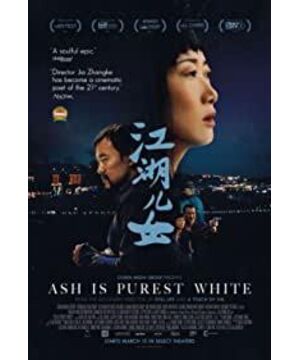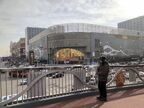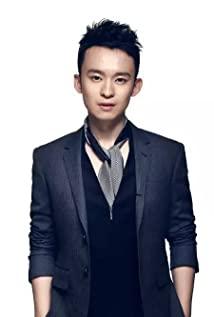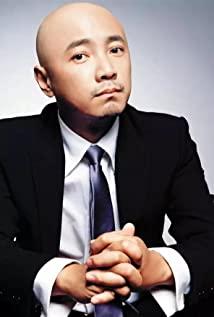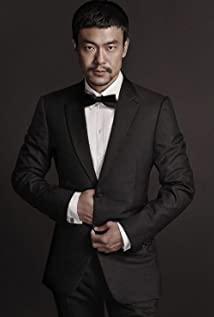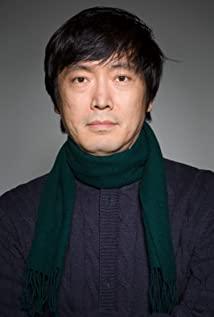From the perspective of the literal meaning, just looking at the title of the film will probably automatically substitute for a situation of old Hong Kong movies in the 1990s, and a lot of concepts of gang-type films in our "impression" will emerge. For example: where there are people, there are rivers and lakes. , brotherhood, blood and blood, swords and swords, speeding car chases, bullets, etc., the rhythm of blood is advancing, and the dramatic conflict is fierce. Will Jia Zhangke let such a thing go wrong in his hands? No, so it became "Children of Jianghu".
In fact, Jia Zhangke is not the first to create an anti-genre film about gangsters. The one I am most familiar with is "Jianghu". There are many jokes and jokes. For example, brotherhood comes from gay affection, and Master Bai Fan is a professional advisor and an art lover. (The boundaries between work and life are clear), after the second brother Guan appeared, he was disgraced by the rule of taking advantage of words. So what is the difference between "Children of Jianghu" and this anti-genre film?
Probably this pair of children of the rivers and lakes was placed in a much broader space-time background than Hong Kong.
Different eras and background noises transplanted from "Xiao Wu", "Ren Xiaoyao", "The Good Man in Three Gorges", "Tian Destiny", etc., have been poured into Binbin and Qiaoqiao's life, video hall, singing and dancing. Halls, national standard dances, small theater performances, old Hong Kong movies and old pop songs, state-owned enterprises were restructured and laid off, unemployed youths fought, coal bosses turned into developers, until Xu Zheng was both like a MLM boss and a middle-aged literary artist. The image of Jia Zhangke and the hoarse "How Much Love Can Be Repeated" by the street circus are elements of Jia Zhangke's growth process, and are also what many of our audiences have seen and heard in daily life (no wonder many critics say that Jia only plays the game of stacking). ). When the green-skinned train turned into a bright high-speed EMU, Binbin also changed from a high-spirited "big brother" to a stroked old man with a beard in a wheelchair. The times have become plump and colorful, and the "big brother" who can't do anything has become shriveled and old.
Regarding the "big brother", the "fans" that appear on the stage are very sufficient. One or two sentences can make people feel awe, and a few bills the size of bricks are shot. But in the end? He promised to shovel brother Er Yong without shoveling, and brother Er Yong was killed. He promised to take revenge. In the end, he said, "Children today don't know what it means to be afraid" and nothing more. What about yourself? When he was beaten, he was beaten, and the child who beat people didn't say "recognize the wrong person". The towel-wrapped man got out of the car so violently that he kicked a few out of ten. Just when the audience thought that Chen Haonan was showing his spirit, he was sent up by the second wave. The scoundrel is punched in the front of the car. Obviously, no matter how big or hard the fist is, it is difficult to defeat the wolves. This is the law of nature ("Underworld", "Slaying the Wolf" return to the fist bench to solve the problem is simply myth 666), trembling The trembling woman fired two shots into the sky and easily shoveled the matter away. This is also a natural law.
On this side, the seemingly stable gang is actually so crunchy that it collapses with a push (really capable eldest brother, do you still need to go to jail for a fight?), on the other side, even Qiaoqiao's understanding of "righteousness" is shallow. What is unclear is that it only comes from the oral narration of Binbin and his horse, as well as the information transmitted by the symbol of the second brother. It is also simple to guard the word "righteousness". It is a simple passion, and a simple Violence - pistols, it doesn't matter if you go to jail, as long as you have deep love, simple altruism, and dedication. 17 years later, while pushing a wheelchair, Qiaoqiao said to Binbin, "If I don't have love for you, I don't have any pain or hatred, but I still have righteousness, so when you come back, I will take you in." This kind of simple nature Morality, with a clever mind, also makes her the most decent character in the entire film.
The little people in Jia Zhangke's writings are low in the dust, but they often look up at the stars. From the weird abandoned dormitory building in the Xinjiang Gobi and the UFO trajectory directly transplanted (chao) from "The Good Man of the Three Gorges", to "We are all prisoners of the universe" (there should be a laughter about the mayor of Sun Liancheng here), apparently coincidental Qiao has already surpassed the broken and dirty city of Datong and the wider land of China. Just like the sentence "In the long run, we are all dead", it means to see through the red dust, but the Chinese people will eventually return to their roots. Return to the red dust (mahjong hall), hidden in the city. Ash Is Purest White, the return of a leaf after the wandering, is quite suitable for the appetite of all kinds of young and middle-aged literary artists.
PS: I just read Director Jia's answer on Zhihu, and found that this film review is quite in line with his self-report, growth, changes in times, social transformation, wandering and return, understanding of affection, rivers and lakes and people. The reason why there are still images from 17 years ago is all due to the various materials that Director Jia has shot with various equipment over the years. The opportunity is really reserved for those who are prepared.
View more about Ash Is Purest White reviews


